Worst to Best: Neon's 2024 Slate
The year's most anticipated screener shipment yields another adventurous year, including the best film of 2024. But it's not without a few bumps in the road.
Over the last few years, distributors have most stopped sending critics groups and other awards-giving bodies physical screeners for their slate, choosing instead to offer digital links with tight expiration dates and an often byzantine authentication process. Boo-hoo, right? Yet the one shipment myself and many of my colleagues hotly anticipate every year is the Neon box, a multi-disc set containing the entire slate of one of the most adventurous labels in the business. For the last two years—here’s 2023 and 2022 for comparison’s sake—I’ve watched and ranked the Neon box, partly to catch up with some films I haven’t seen but also to get a larger sense of the company’s priorities and its cultural impact.
The 2024 edition is undoubtedly the weakest of the last few years, which each had an abundance of year-end list contenders. (2021: Pig, The Worst Person in the World, Petite Maman, Memoria; 2022: All the Beauty and the Bloodshed, Triangle of Sadness, Moonage Daydream, Saint Omer; 2023: Anatomy of a Fall, Enys Men, The Royal Hotel, Perfect Days.) The two best films here were each snapped up from Cannes, where they won top prizes. But this year, Neon ventured more into the mainstream with a trio of horror films that paid off handsomely overall—Longlegs was the biggest moneymaker in the company’s history—and a pair of deeply flawed science-fiction movies, Asif Kapadia’s 2073 and Joshua Oppenheimer’s The End, which at least showed a willingness to roll the dice on conceptually ambitious films with strong political bents. Sometimes such risks pay off and sometimes they don’t. We just hope they keep taking them.
YIKES
12. 2073 (dir. Asif Kapadia)
Though he’s been making fiction and non-fiction films for many years—and directed a couple of Mindhunter episodes to boot—Asif Kapadia is best known for an excellent trio of documentaries on Ayrton Senna (Senna), Amy Winehouse (Amy), and Diego Maradona (Diego) that dispensed of talking heads in order to construct biographies through the artful stitching of archival footage. With 2073, Kapadia attempts a doc-fiction hybrid that’s meant to evoke La Jetée in its sci-fi premise of a time traveler seeking to steer the world away from a catastrophic future. But Kapadia’s eagerness to root that future in the present-day ills of climate change, the surveillance state, and the weakening of democracies around the world lead to long stretches where real journalists lay out the case directly. This approach could kindly be called “essayistic.” It feels, more honestly, like the relentless tapping of a ball-peen hammer to the skull.
Where to watch: Rentable.
MISFIRES
11. Seeking Mavis Beacon (dir. Jazmin Jones)
Sometimes investigations lead to unproductive and unilluminating ends. You can scuttle such projects or continue fashioning some kind of workable garment out of a mess of loose threads, which is what Jazmin Jones does in her debut documentary. For some ‘90s kids, Mavis Beacon Teaches Typing was a useful proto-Siri software program that featured a placid, smiling, self-assured Black woman as a digital assistant. This made a lasting impression on Jones, so she and Olivia McKayla Ross put themselves in front of the camera to embark on a mission to examine Mavis Beacon’s legacy and track down the woman who played her. The result is a thesis in desperate need of supporting text, which leads to an excess of wheel-spinning as Jones never nails down the story she wishes to tell.
Where to watch: Hulu; rentable.
10. Mothers’ Instinct (dir. Benoît Delhomme)
Here’s the paradox about campy melodramas: The more you try to class them up, the more ludicrous they become. Only when you steer hard into the curve—like Bette Davis and Joan Crawford in director Robert Aldrich’s What Ever Happened to Baby Jane?, for example—is transcendence possible. Making his debut as director after decades as a brilliant cinematographer—Cyclo, What Time is It There?, The Proposition, and A Most Wanted Man are all his—Delhomme applies a Sirkian sheen to the story of a friendship between neighboring mothers (Anne Hathaway and Jessica Chastain) in ‘60s suburbia that curdles into paranoia and hostility in the wake of a tragic accident. But as their relationship deteriorates and their actions grow more extreme, Delhomme insists on a measured tone that’s not in keeping with the truly bugnuts events that unfold. The dissonance flattens the film like a pancake.
Where to watch: Hulu; rentable.
IFFY
9. Stress Positions (dir. Theda Hammel)
An indie comedy set among quirky young adults all piled into a modest brownstone in Brooklyn? Now I’ve seen everything! Okay, with that glib note out of the way, it should be said that trans writer-director-star Theda Hammel has smartly conceived Stress Positions as a Covid-era comedy where that familiar sense of isolation raises the tensions within a building where her dysfunctional and often off-putting characters can’t get away from each other. Hammel herself is the most arresting screen presence, with a sense of humor poised between the sardonic and the willfully stupid, and the entire cast’s obsession with the 19-year-old Moroccan model occupying the garden apartment yields some funny moments. But the slightness and familiarity of Stress Positions keeps it from coming to life, despite Hammel’s oft-stinging observations about queer culture.
Where to watch: Hulu; rentable.
8. Handling the Undead (dir. Thea Hvistendahl)
The dead are coming back to life! And they’re Norwegian! Aaaaaaaaaaahhhhhhh!!! As it happens, the Norwegian zombies in Handling the Dead are not frightening so much as only technically alive, which causes confusion and additional grief for three families who might have wished for their loved ones to return, but aren’t particularly satisfied by what they get. Working from a novel by John Ajvide Lindqvist, who wrote the source material for Let the Right One In, co-writer/director Thea Hvistendahl attempts a mood piece of uncannily similar tenor and she conjures a moody atmosphere to go along with a fine-enough cast, including Worst Person in the World stars Renate Reinsve and Anders Danielsen Lie. But there’s barely a ripple of passion and excitement to be found here, and the film’s determined somnambulism feels like the wrong kind of weight.
Where to watch: Hulu; rentable.
7. Immaculate (dir. Michael Mohan)
The last time Sydney Sweeney and director Michael Mohan got together, they made The Voyeurs, a Hitchcock-by-way-of-De Palma erotic thriller that was released on Prime Video and felt like sexy, ridiculous straight-to-video nirvana. And so Sweeney and Mohan collaborating again on a nunsploitation horror film about a virginal American novitiate in an Italian convent sounded like a can’t-miss proposition, given how both of them seemed to know the assignment. Yet compared to the gonzo likes of a similar film like Paul Verhoeven’s deliciously scandalous Benedetta, Immaculate seems disappointingly muted and semi-respectable, a decently stylized shocker that never shakes loose from the habit.
Where to watch: Hulu; rentable.
6. Babes (dir. Pamela Adlon)
Known for her wonderfully salty and observant work as the showrunner/star of FX’s long-running Better Things—and, you know, a major contributor to its once-groundbreaking and well-thought-about sibling series Louie—Pamela Adlon makes her feature directing debut with a characteristically frank treatment of an unplanned pregnancy. A vehicle mainly for Ilana Glazer, who co-wrote the script with Josh Rabinowitz, Babes operates like a cool, Off Broadway, gender-reversed Knocked Up, with Glare as a single woman who gets pregnant after a one night stand and opts to have the baby on her own. Glazer and Michelle Buteau, who plays her best friend and an experienced (if no less unhinged) mom, have a fun, rowdy chemistry together and the film zestily celebrates the grossest parts of the process, like the frequency of women defecating during labor. But Babes lurches ahead in hit-or-miss comic sequences that are too bound to the herky-jerky rhythms of an FX TV series.
Where to watch: Hulu; rentable.
CREEP SHOWS
5. Cuckoo (dir. Tilman Singer)
The cuckoo part of Cuckoo is a little cuckoo, a peculiar diabolical plot envisioned by the proprietor of a strange hotel in the German Alps that never quite sorts itself out, save for a handful of disturbing images. But this proprietor is played by Dan Stevens, who makes a welcome return to the cheery malevolence of his turn in The Guest, and director Tilman Singer proves to be an avid student of Euro-horror films like Suspiria, which Cuckoo resembles in planting a young woman (Hunter Schafer) in a secluded locale and targeting her with exotic horrors. Singer doesn’t make sense of what’s going on, but he has a richly developed sense of style and setting, and he extends the avian theme to horror sequences that flutter with sudden violence.
Where to watch: Hulu; rentable.
4. Longlegs (dir. Osgood Perkins)
Neon had its first big A24 moment in 2024 when one of its horror films expanded well beyond the arthouse and banked over $100 million while utterly confounding mainstream viewers, who have filed enough one-star reviews on the internet to tank several blocks’ worth of restaurants. No matter. Osgood Perkins, who’d shown lots of promise as an old-fashioned fright-master with The Blackcoat’s Daughter and I Am the Pretty Thing That Lives in the House, directs Longlegs as a more offbeat, abstract The Silence of the Lambs, casting Maika Monroe as an FBI agent with clairvoyant powers. Add to that a pallid, long-haired, reedy-voiced Nicolas Cage as the serial killer of the title and Longlegs proves delectably strange, if not quite a modern classic.
Where to watch: Rentable.
BIG SWINGS
3. The End (dir. Joshua Oppenheimer)
Based on his duo of astonishing documentaries about mass atrocities in Indonesia, The Act of Killing and The Look of Silence, and now the bizarre, arid, divisive musical The End, director Joshua Oppenheimer has a keen interest in the human capacity for evil and the twisted rationales that make it possible. Set in the luxuriously refurbished salt mine where the wealthy family of an oil tycoon (Michael Shannon) hides from the surface-level apocalypse he helped perpetrate, The End is a little like Dogtooth: The Musical, with Father and Mother (Tilda Swinton) raising a twentysomething boy (George MacKay) underground and feeding him the sort of alternate history that Prager U might animate for kids. The truth proves disruptive, of course, but it’s countered by the coddling language people use to suppress emotions and absolve themselves of responsibility. Oppenheimer doesn’t have much of a handle on what The End is supposed to be, exactly, and the options (mirthless satire or bleak, tuneless musical?) are not appealing in and of themselves. But The End is demented and trenchant in equal measure, a singular achievement in feel-bad cult filmmaking.
Where to watch: In theaters.
2. The Seed of the Sacred Fig (dir. Mohammad Rasoulof)
I wrote a capsule on Rasoulof’s courageous shot across the bow for my Best of 2024 list last week, so I won’t add much here, other than the hope that filmmakers facing an oppressive, fundamentalist regime that’s hostile to protest and human rights have the moxie to keep their lenses open. That’s not to say that Rasoulof’s willingness to confront the censors this brazenly is his only achievement, but his incorporation of footage of actual state violence against activists in Iran adds urgency to his story of a principled lawyer who sells out for a government job and faces blowback from his own family.
Where to watch: In theaters.
EXCELLENT
1. Anora (dir. Sean Baker)
My #1 film of 2024 is, naturally, #1 here in a walk. Baker has been building up to Anora for a while, not just in his ongoing interest in the lives of sex workers and other American fringe-dwellers, but with a seriocomic style that’s somehow loose-limbed and disciplined at the same time. Like his previous film, Red Rocket, Anora spills out well over two hours and allows certain sequences time to breathe and accumulate momentum, like one where Mikey Madison’s Ani is confronted by her new husband’s minders and tries to kick her way out of an annulment. Yet Baker knows where he’s going with the film, comically and dramatically, so Anora never feels like rudderless improvisation. Every scene is purposeful while sustaining a feeling of anything-goes spontaneity, and Ani’s plight is intoxicating, madcap, and, finally, heartbreaking.
Where to watch: Rentable.





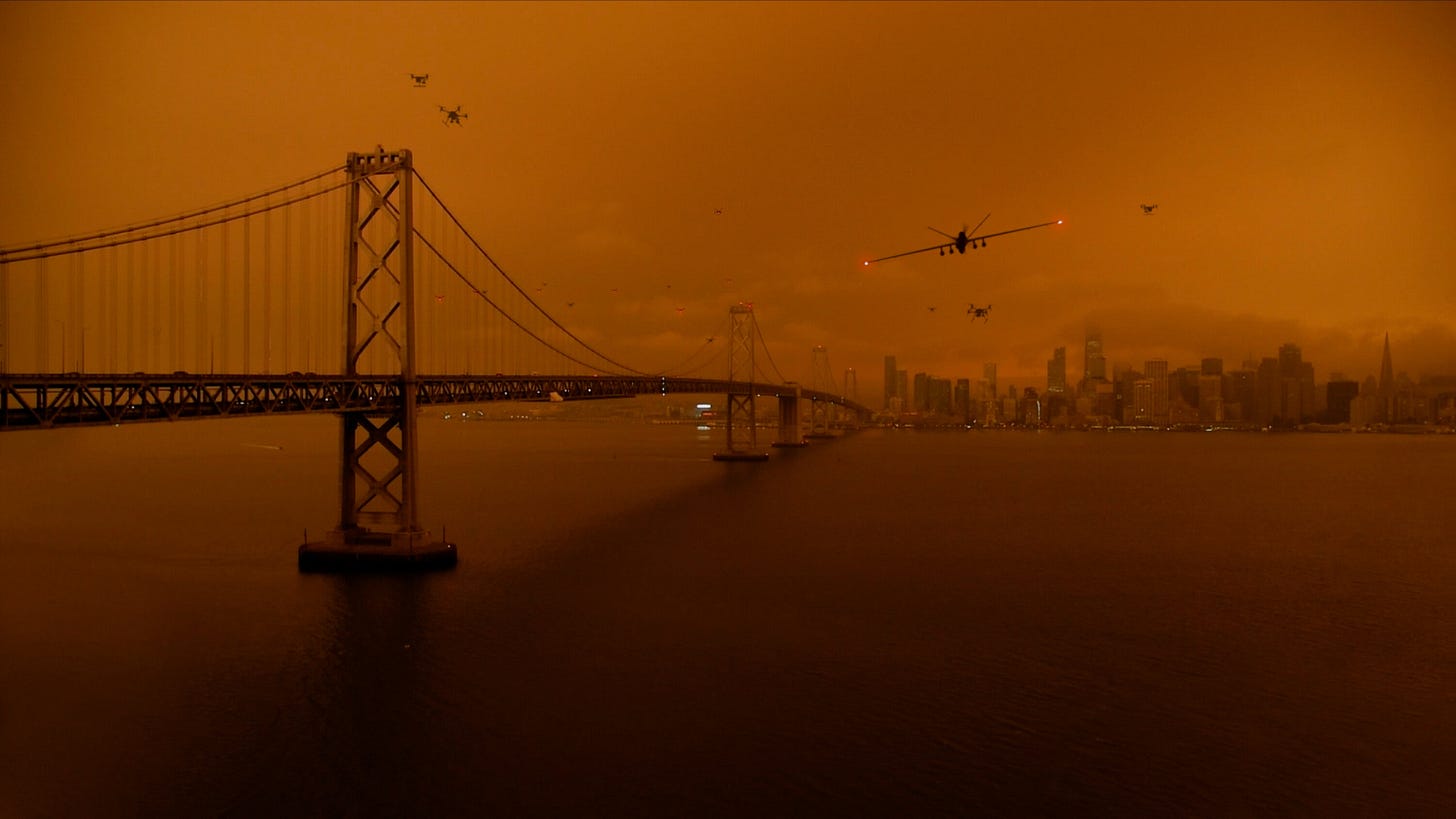
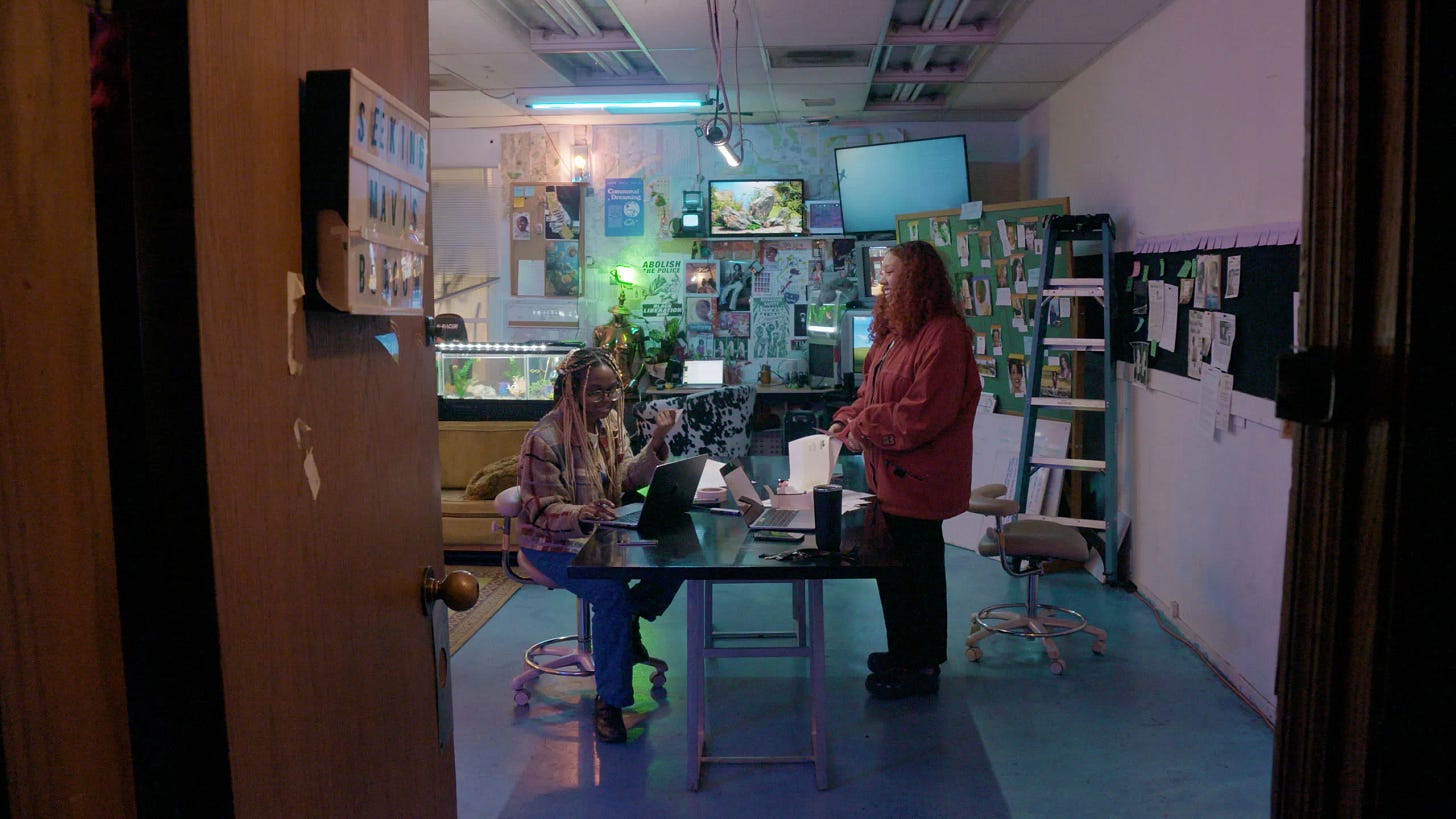
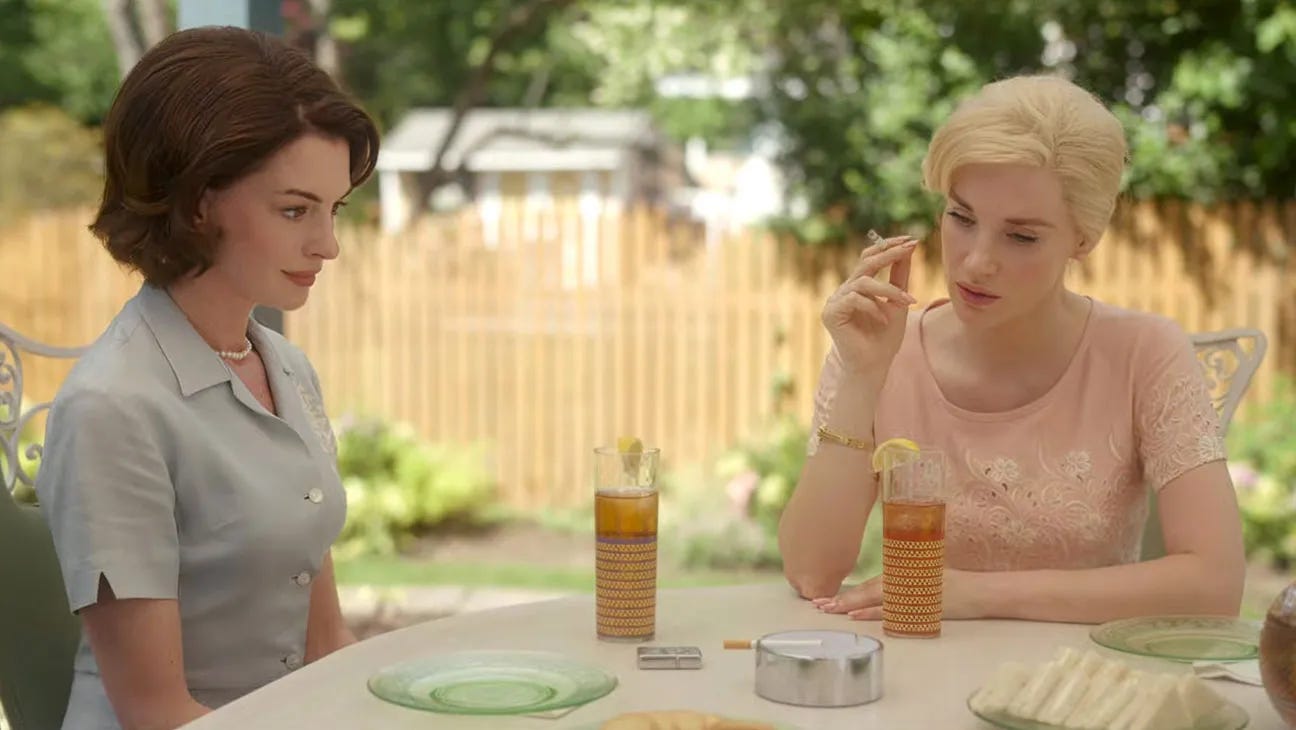

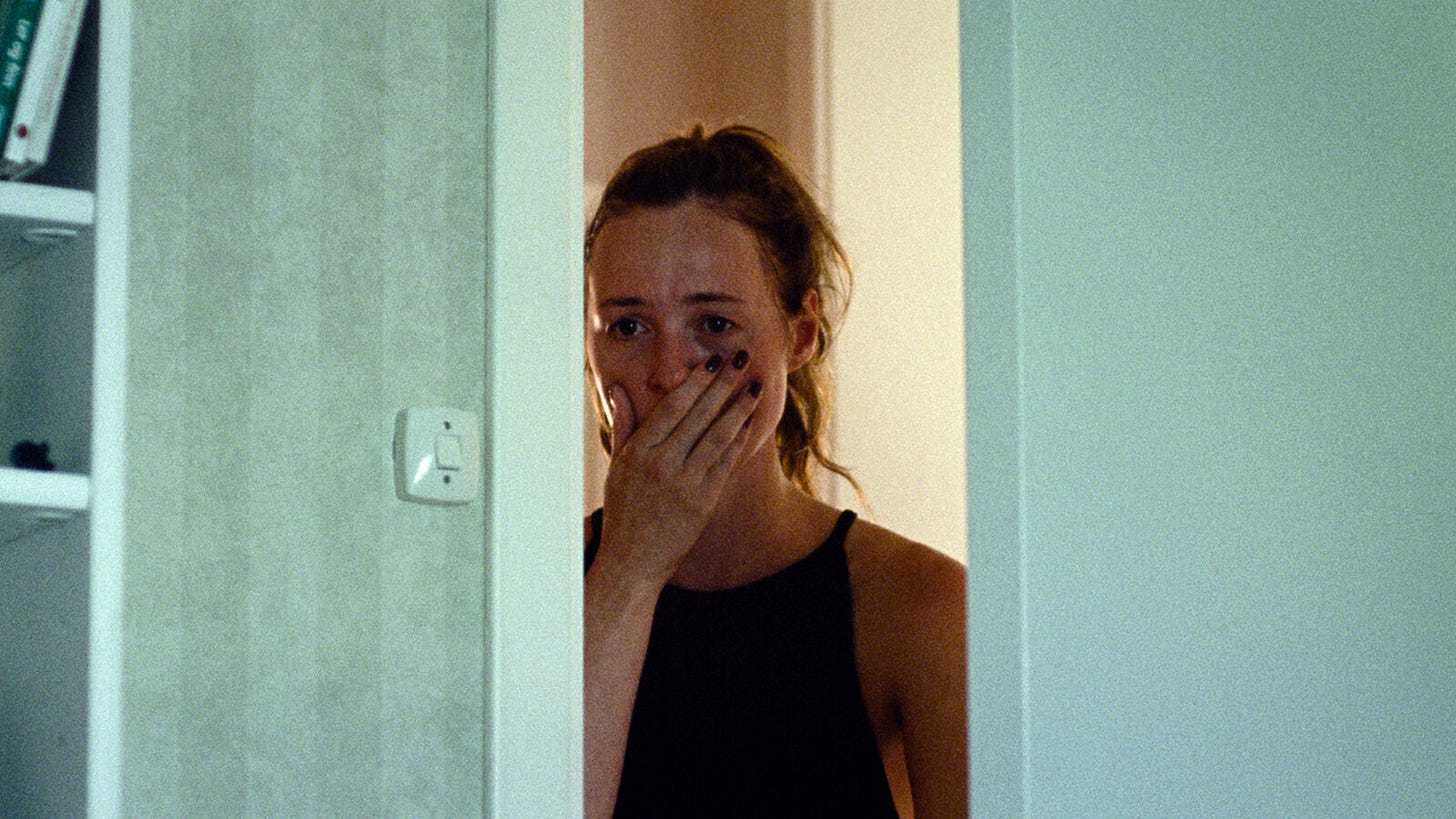
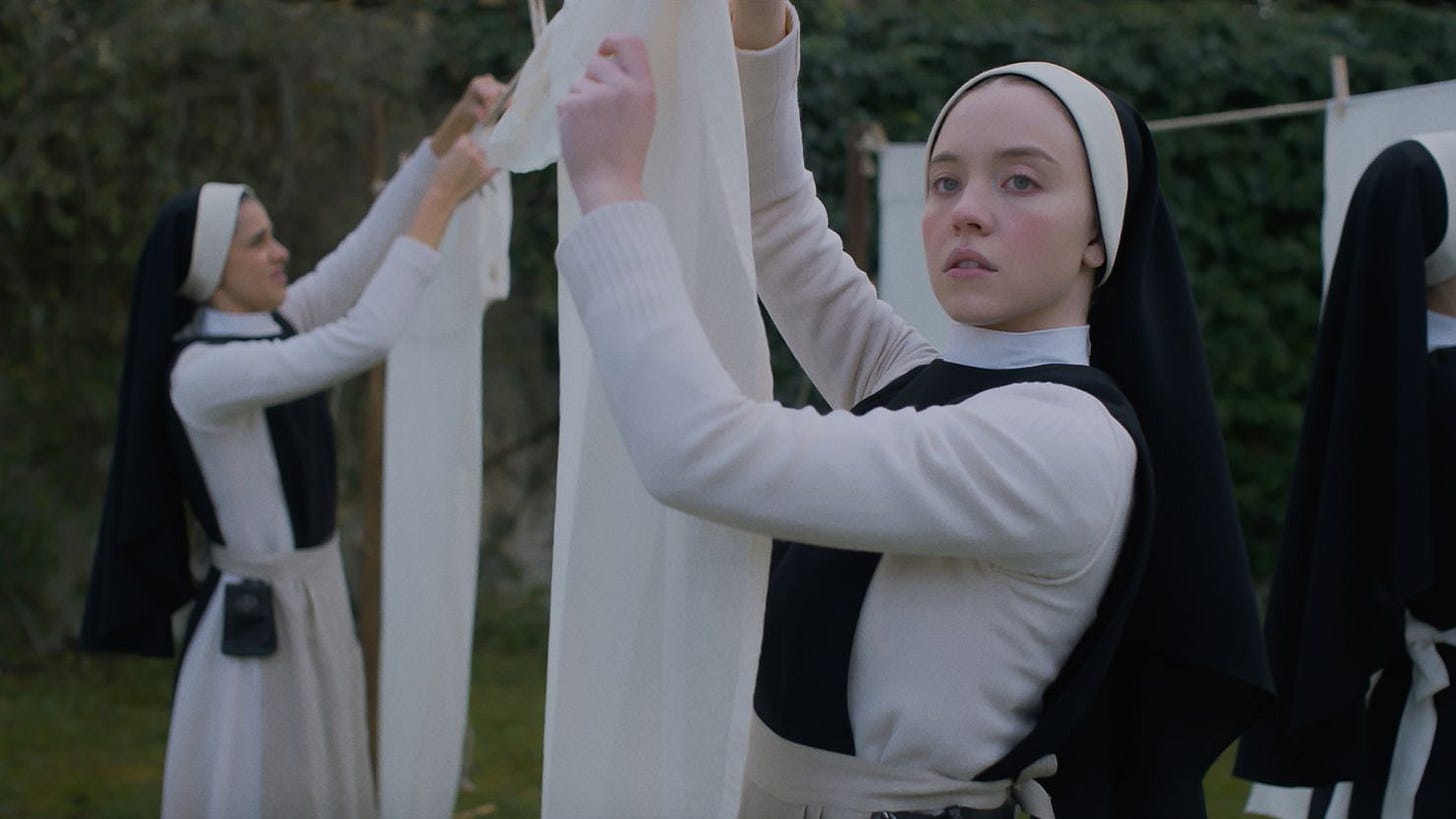
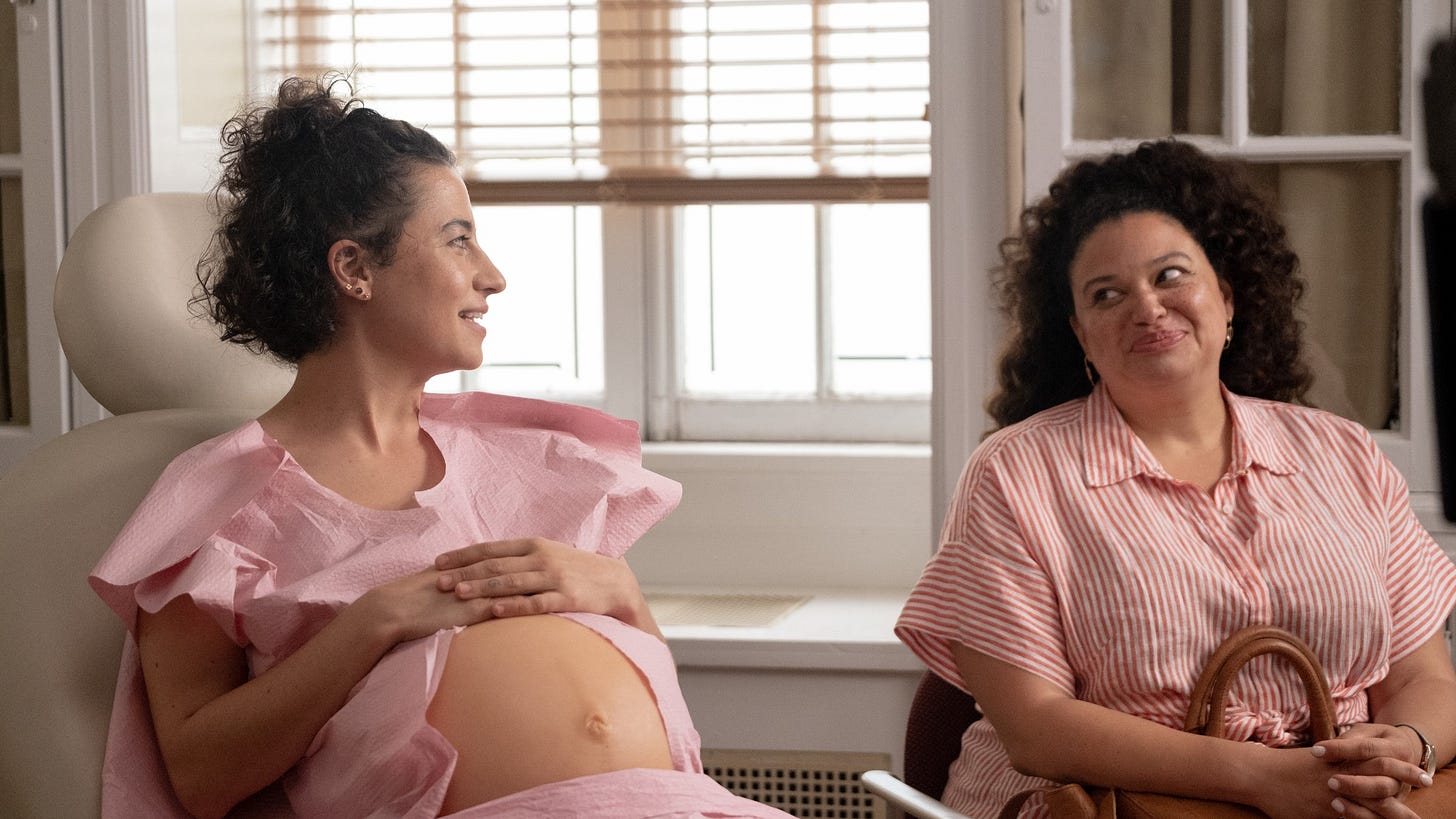
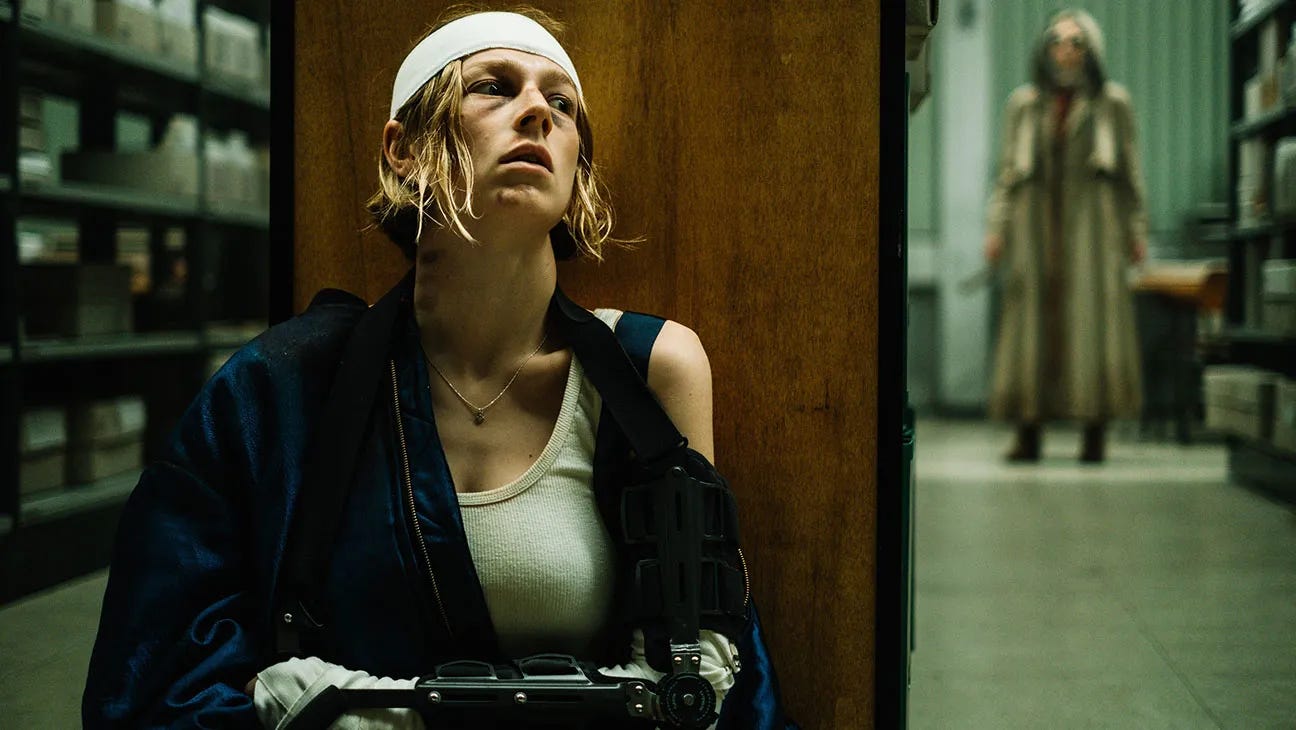
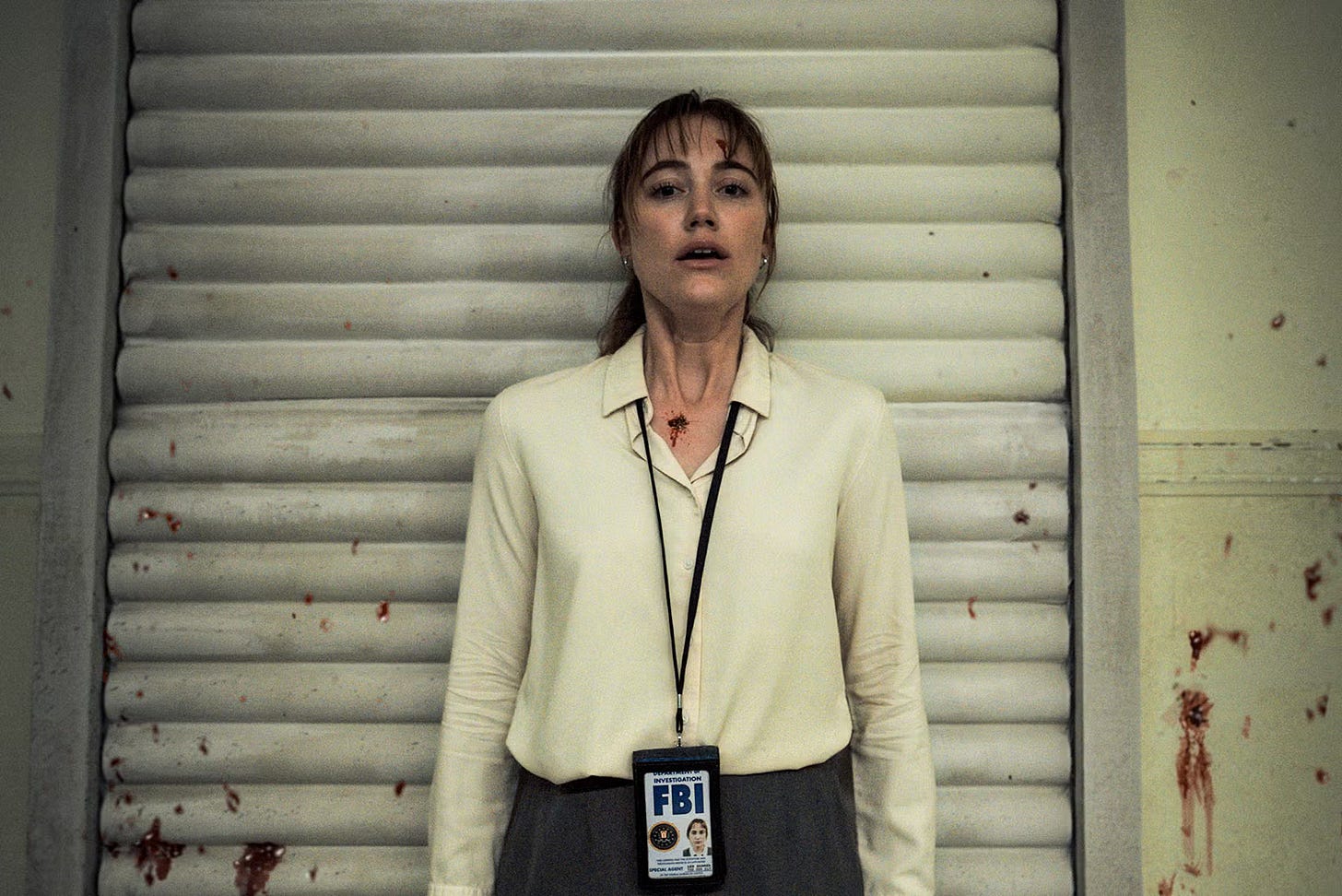
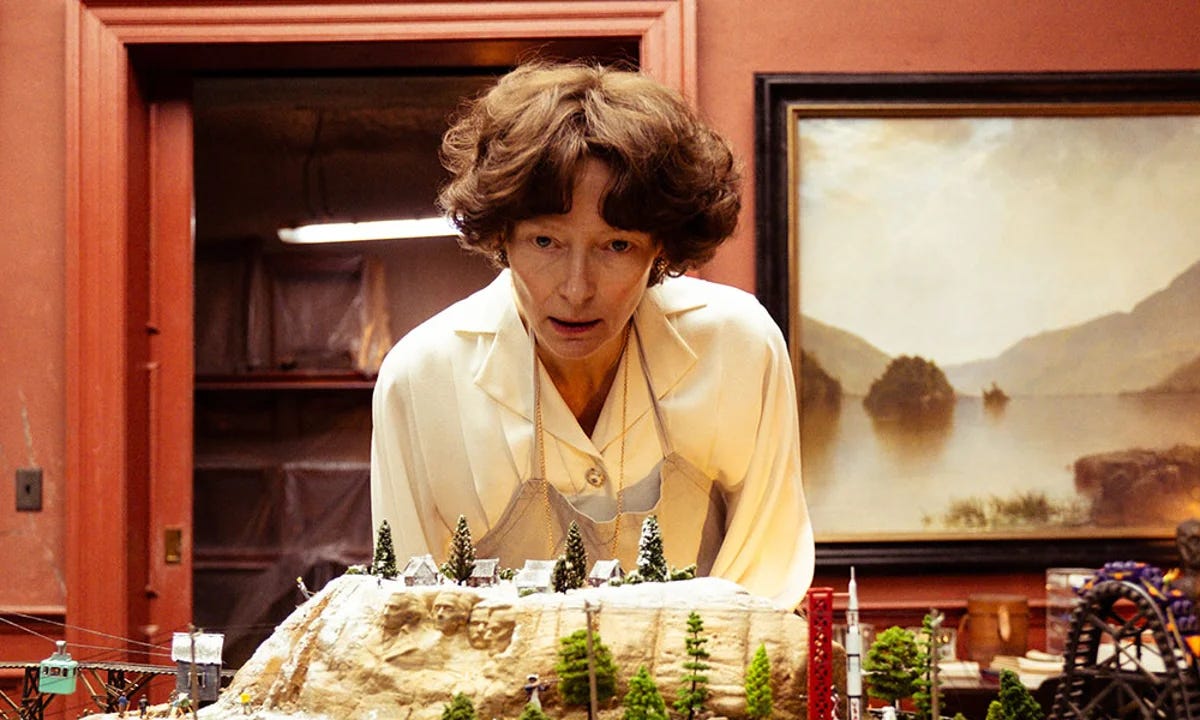
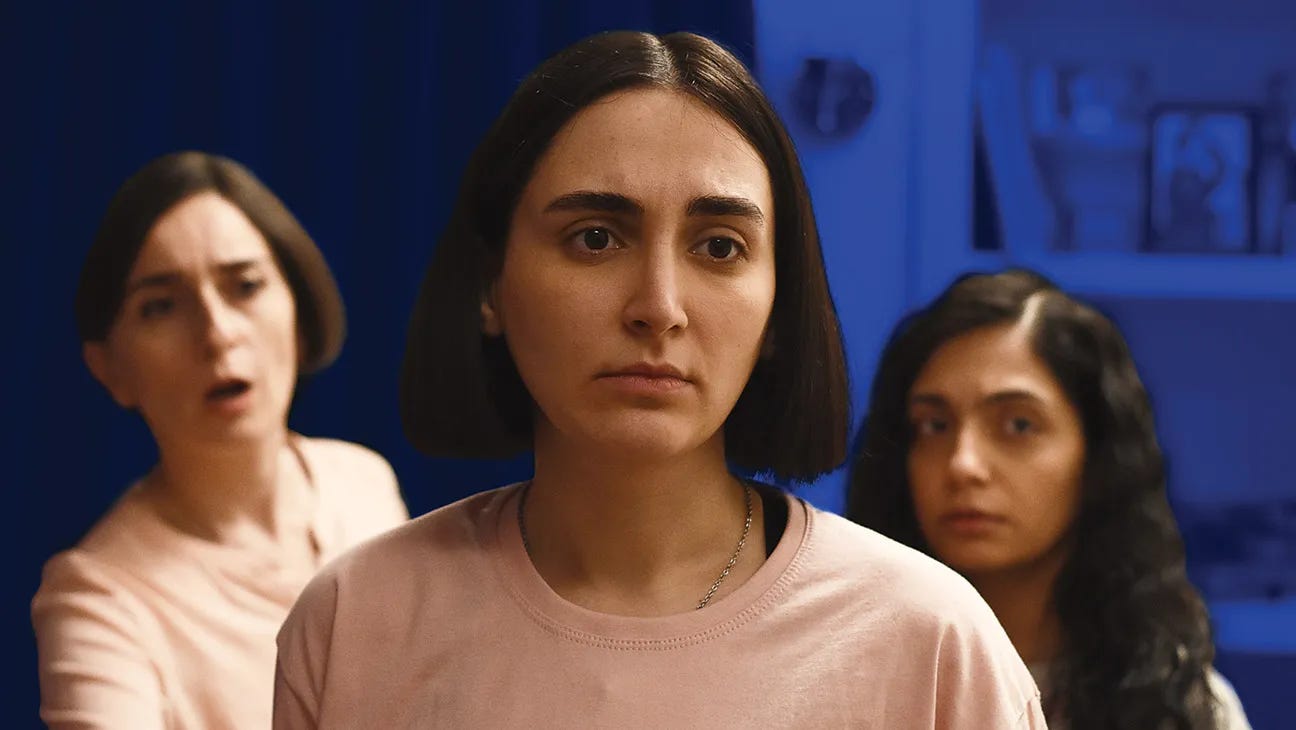
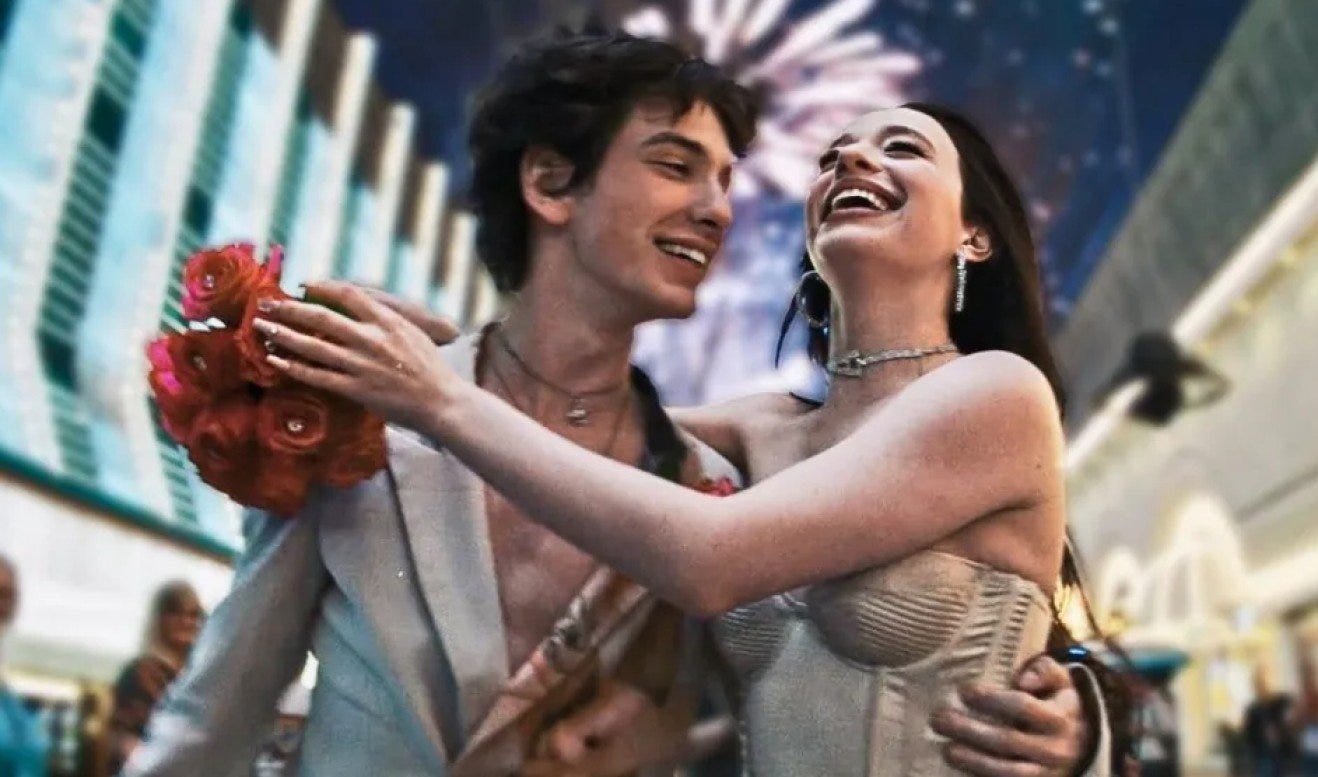
I really wish NEON would sell a higher-end, consumer-facing version of this box for non-critics. While I’m so happy to have mine, I really wish others could get their hands on it.
I really wanted to like Handling the Undead, but "determined somnambulism" is the perfect description for why it bored me. But I also had the weirdest experience when I watched it on the Sundance stream. So much dialog, possibly even the majority, was only in subtitles. News reports, offscreen conversations, even descriptive audio of zombie attacks in the distance were all appearing as text on screen but I could not hear one of them.
Once it hit wider release I heard other people had the same problem, so it wasn't just the festival stream. I really wonder what the issue is, because some of those subtitles implied a much more exciting movie than what was actually visible or audible.